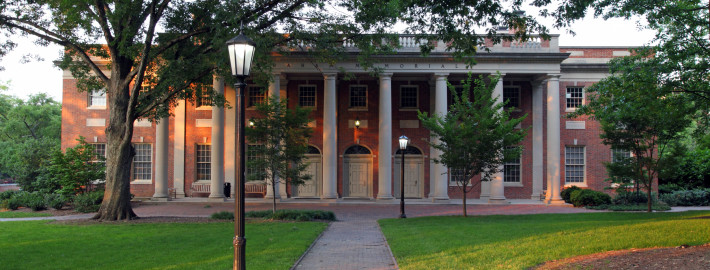The University of Chicago Spurs the Test-Optional Movement
The University of Chicago announced that it will no longer require ACT or SAT scores from U.S. students, a signal toIvy League and other top-tier institutions that a traditional admissions practice is now waning. Chicago is the first elite American research university to join the test-optional trend.
Numerous institutions, including many top liberal arts colleges, have dropped testing mandates in recent years, primarily as a means of enhancing their recruiting in a competitive market. But the recent announcement by Chicago was a milestone, which, according to the Washington Post,“Cracked what had been a solid and enduring wall of support for the primary admission tests among the two dozen most prestigious research universities.”
The University of Chicago, a private institution in the city’s Hyde Park neighborhood, admits only 7% of applicants and ranks third on the U.S. News & World Report list of top national universities, after Princeton and Harvard and tied with Yale. Chicago has required that prospective freshmen take a standardized admissions test since 1957.
Many college administrators have become concerned that standardized test results reflect a linear relationship with socioeconomic status. Many have adopted test-optional policies as a remedy. They posit that placing too much emphasis on the results of a single test unfairly impairs the chances of admission for otherwise qualified minority students. However, it’s important to note that limiting the role of standardized tests in admissions also serves the interests of students of any socioeconomic bracket, especially those who don’t perform well on standardized exams and would rather rely more heavily on their academic record.
Some observers of the admissions process maintain that schools have an unstated ulterior motive for dropping test requirements — it raises their position in college rankings. When testing is optional, average test scores for a school rise because fewer low scores are submitted. In addition, test-optional policies attract more applications, which also lowers the admissions rates and makes a school appear to be more selective than it did previously. However, the University of Chicago already has a very low admissions rate (7%) and high test scores (75% of last year’s freshmen who took the SAT scored at least 1480 out of 1600). There is no reason for Chicago to act surreptitiously to raise its rankings.
The National Center for Fair and Open Testing, a nonprofit organization that operates under the name FairTest, seeks to end what they consider to be the unfairness of the SAT and ACT standardized college admissions tests. FairTest tracks colleges and universities that have adopted test-optional policies, defined as those that don’t require ACT or SAT scores as an essential part of a student’s application but accept and consider them if they are submitted by applicants.
Starting from only a relatively few schools a decade ago, FairTest now lists more than 800 institutions with test-optional policies. It’s of benefit to well-qualified students who aspire to attend a top-tier school but don’t perform well on the tests to apply to those “more selective” and “highly selective”institutions with test-optional policies. Some of these institutions are listed below:
Table A: Top-Tier Institutions with Test-Optional Policies
| Middlebury College | Colby College | Hamilton College |
| University of Rochester | New York University | Colorado College |
| Smith College | Wesleyan University (CT) | University of Texas – Austin |
| Bard College | Bates College | Bowdoin College |
| Brandeis University | Bryn Mawr College | Connecticut College |
| Wake Forest University | Mt. Holyoke College | Sarah Lawrence College |
| Pitzer College | George Washington University | Trinity College (CT) |
| University of Chicago | Quinnipiac University | Skidmore College |
| Allegheny College | Transylvania University | University of Rochester |
| American University | Colorado College | Loyola Univ. of Maryland |
A few years ago, Hampshire College, a liberal arts college in Massachusetts, stopped even accepting SAT or ACT scores from applicants. If submitted, scores are disregarded. The college has found that without test scores, it has selected freshman classes that are more highly qualified by other measures than its previous classes were. However, an unfortunate result of Hampshire’s no-test policy is that U.S. News dropped the school from its 2017 college rankings because test score averages remain a mandatory data element in their ranking algorithm. This situation has yet to be remedied by U.S. News. No school wants to suffer being deleted from a popular ranking resource because they’ve made what has proven to be a beneficial change to their admissions policy.
Wake Forest University in North Carolina went test-optional in 2009 when the admissions committee determined that the standardized tests measured family income far more accurately than academic ability. Before Wake Forest dropped its test requirement, underrepresented minorities made up 12% of the freshman class. Several years later, they had risen to 16%. Wake Forest administrators learned that, although a test-optional policy doesn’t automatically increase diversity, it’s a good first step toward removing discriminatory barriers. Even so, some observers have found Wake Forest’s increase in diversity to be misleading. In one study, the majority of non-submitters were white, upscale students. It will take another decade or so before conclusions can be drawn about the full impact of test-optional policies.
IvySelect, as an experienced college admissions consulting firm, provides benefits to all students, from those who do extraordinarily well in standardized tests to those who aren’t able to perform up to their full ability. Students hire us for our thorough knowledge of the admissions policies and practices of elite American institutions. Your private IvySelect consultant specializes in identifying and cultivating the best of what you have to offer to schools as a student and as a person. We make sure that you communicate this information through your application to those elite institutions that fit you best.





